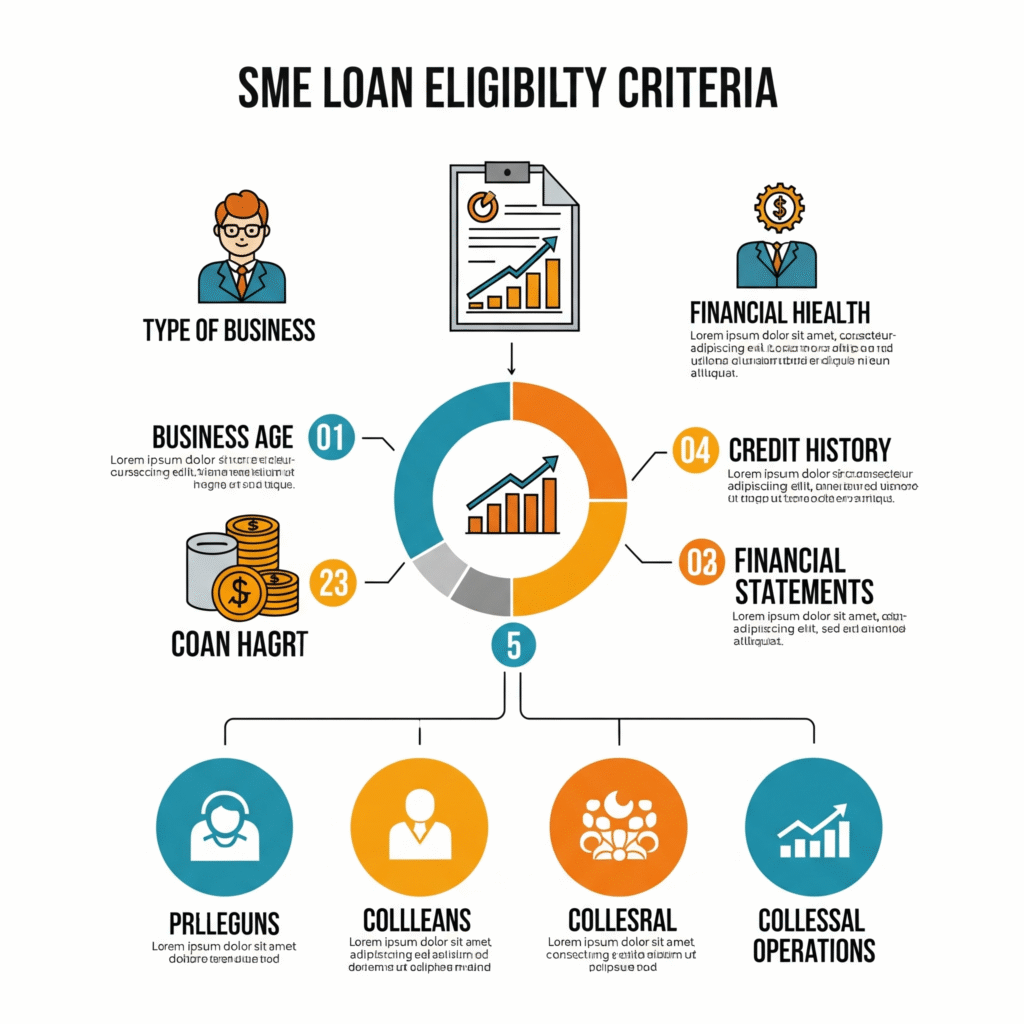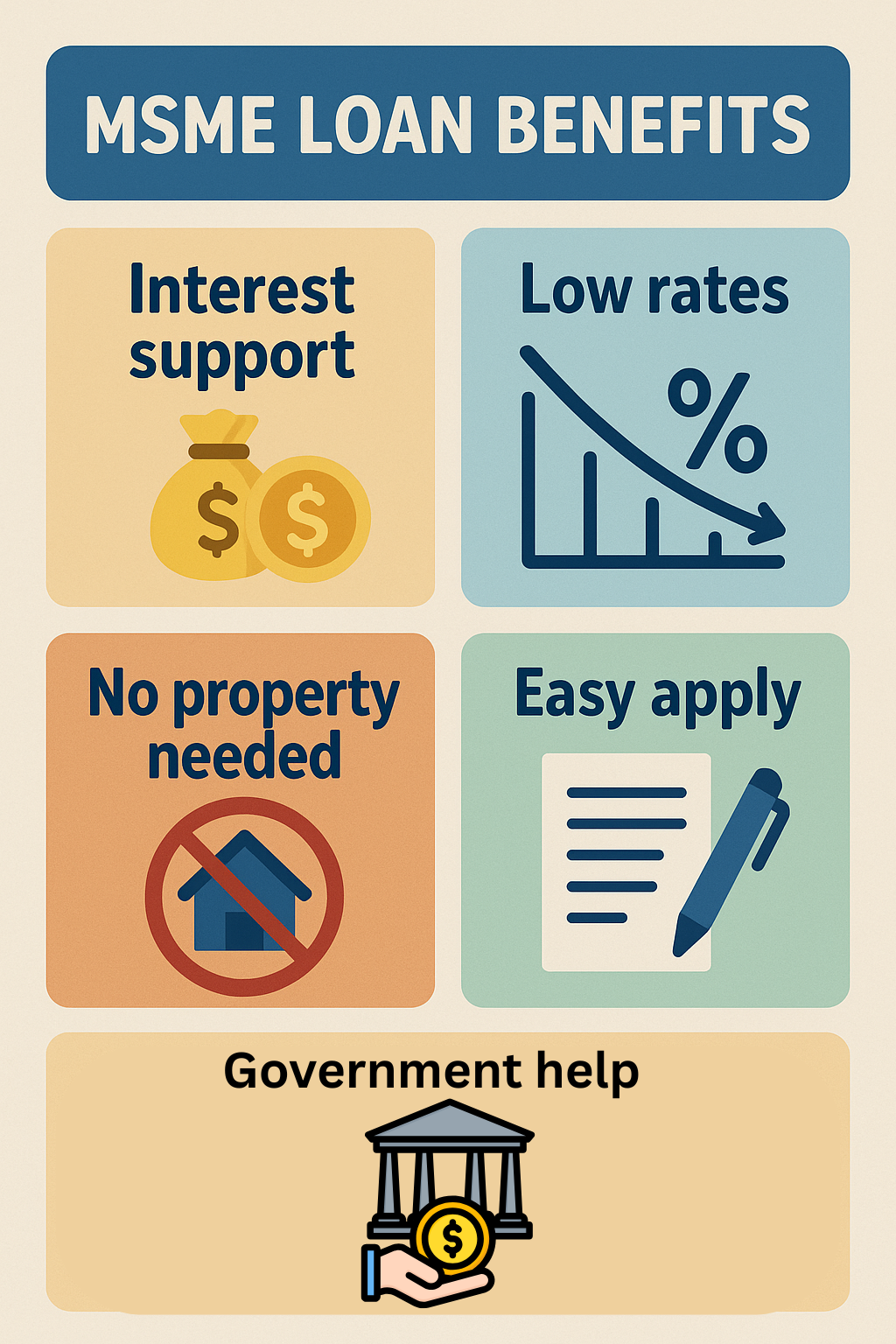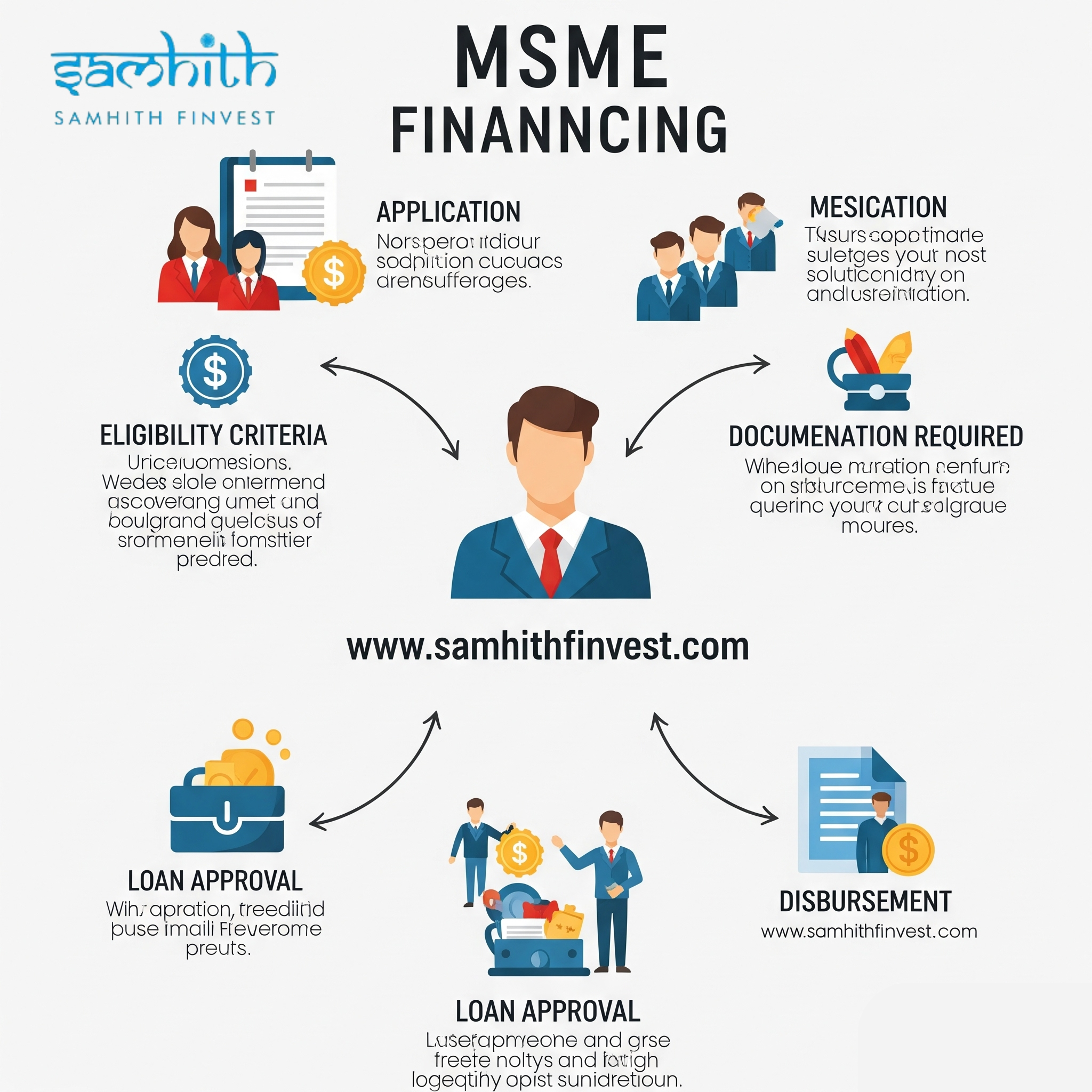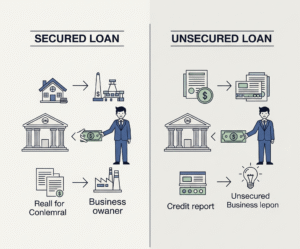SME Loans Eligibility: Complete Guide for Small Business Owners

Introduction to SME Loans
Small and Medium Enterprises (SMEs) are the backbone of India’s economy. To support their growth, banks and NBFCs offer specialized loans known as SME loans. But before applying, it’s essential to understand the SME loans eligibility criteria. This blog will provide an in-depth view of the eligibility requirements, factors that influence approval, and how to improve your chances of getting an SME loan.
What is SME Loan?
Understanding SME Finance
What is SME loan? It refers to a financial product offered by banks and financial institutions to support the capital and operational needs of small and medium enterprises. SME loans are available for various purposes including expansion, equipment purchase, working capital, and marketing.
Key Features
Loan amount typically ranges from INR 50,000 to INR 5 crore.
Repayment tenure from 12 to 60 months.
Collateral-free options available.
Quick processing and minimal documentation.
Why SME Loans Are Crucial for Growth
Empowering India’s Business Landscape
India has over 63 million MSMEs, contributing nearly 30% to GDP. Timely access to SME funding enables businesses to grow, sustain operations, and compete globally. Understanding SME loans eligibility ensures your application stands out and reduces rejection chances.
SME Loans Eligibility Criteria
General Eligibility Requirements
To qualify for an SME loan, most financial institutions expect the applicant to meet the following conditions:
Business Type
Sole proprietors, partnership firms, LLPs, private limited companies.
Registered under MSMED Act or Udyam registration.
Business Vintage
Minimum 1 to 3 years of business operation.
Turnover Requirements
Annual turnover must typically range between INR 10 lakhs to INR 10 crores, depending on the lender.
Credit Score
A good credit score (650 and above) is often essential for quick approval.
Income Tax Returns
Should have filed ITRs for at least 1-2 years.
Bank Statement
Business account statements for the last 6-12 months.
Documents Required for SME Loan
PAN Card and Aadhar Card (for individual/partners/directors)
Business registration proof
ITR for last 2 years
Bank statements
GST registration and returns
Proof of business address
Financial statements (Profit & Loss, Balance Sheet)
Factors Affecting SME Loans Eligibility
Business Stability
Lenders assess the stability of your business before approving your loan. If your business has regular cash flow and minimal outstanding debt, your chances improve.
Creditworthiness
Credit history of the applicant and the business plays a critical role. Make sure to clear old dues and maintain a clean repayment record.
Industry Type
Certain industries are considered high-risk. If your business belongs to a high-risk sector, your SME loans eligibility may be restricted.
How to Improve SME Loans Eligibility
Maintain a Strong Credit Score
Pay your EMIs and credit card dues on time. Avoid defaults.
Keep Finances Transparent
Maintain up-to-date records. Submit accurate tax returns and financial statements.
Apply with Proper Documentation
Missing or incomplete documents can cause rejections. Double-check everything before submission.
Comparing MSME Loan Interest Rate
Public Sector Banks
Interest rates range from 7% to 13% annually.
Private Sector Banks
Rates range between 10% to 18% based on creditworthiness.
NBFCs and FinTech Lenders
They may offer flexible criteria but higher interest rates ranging from 15% to 28%.
MSME loan interest rate varies based on loan amount, tenure, credit score, and lender policies.
Where to Find SME Loans Near Me
Online Marketplaces
You can search for SME loans near me using loan aggregator websites and apps. These platforms compare different loan offers in your location.
Local Banks and NBFCs
Visit your nearby bank branch or NBFC offices. Many also provide doorstep services for document collection and verification.
Government Schemes
Look for subsidized loan schemes under MUDRA, CGTMSE, and Stand-Up India to get favorable terms.
Types of SME Loans in India
Working Capital Loans
To meet daily operations and short-term obligations.
Term Loans
Used for asset purchase, infrastructure development, and expansion.
Equipment Finance
For purchasing machinery and tools.
Invoice Financing
Helps businesses manage delayed client payments.
Overdraft Facility
Flexible borrowing limit based on current account activity.
SME Funding Options
Government Funding
MUDRA Loans
Credit Guarantee Scheme (CGTMSE)
PMEGP
Private Funding
Angel Investors
Venture Capital
FinTech lenders
SME funding is essential for scalability. Explore both secured and unsecured options.
Benefits of Availing SME Loans
Builds business credit profile
Funds expansion and diversification
Helps in managing cash flow
Offers tax benefits on interest paid
Enhances production capacity
Common Mistakes That Lower Eligibility
Inconsistent banking activity
High existing debts
Lack of registration under MSMED Act
Poor credit score
Incomplete paperwork
Best Practices While Applying for SME Loans
Research and Compare
Explore options online. Use keywords like SME loans near me or check government portals.
Consult Experts
Financial advisors can help you assess SME loans eligibility and suggest the best lender.
Keep Documents Ready
Organized records speed up processing and boost approval chances.
Future of SME Loans in India
As digital banking and fintech adoption grows, accessing SME funding will become easier, faster, and more transparent. AI-based underwriting and alternate credit scoring will soon revolutionize SME loans eligibility criteria.
Conclusion
To sum up, understanding and meeting the SME loans eligibility criteria is the first step toward securing business funding. Whether you’re a startup or an established enterprise, fulfilling the right conditions and maintaining financial discipline can help you qualify for an SME loan easily.
Make sure to check your SME loans eligibility, compare MSME loan interest rate, look for SME loans near me, and understand what is SME loan thoroughly. Also, explore all SME funding options to support your business’s long-term success.














Post Comment